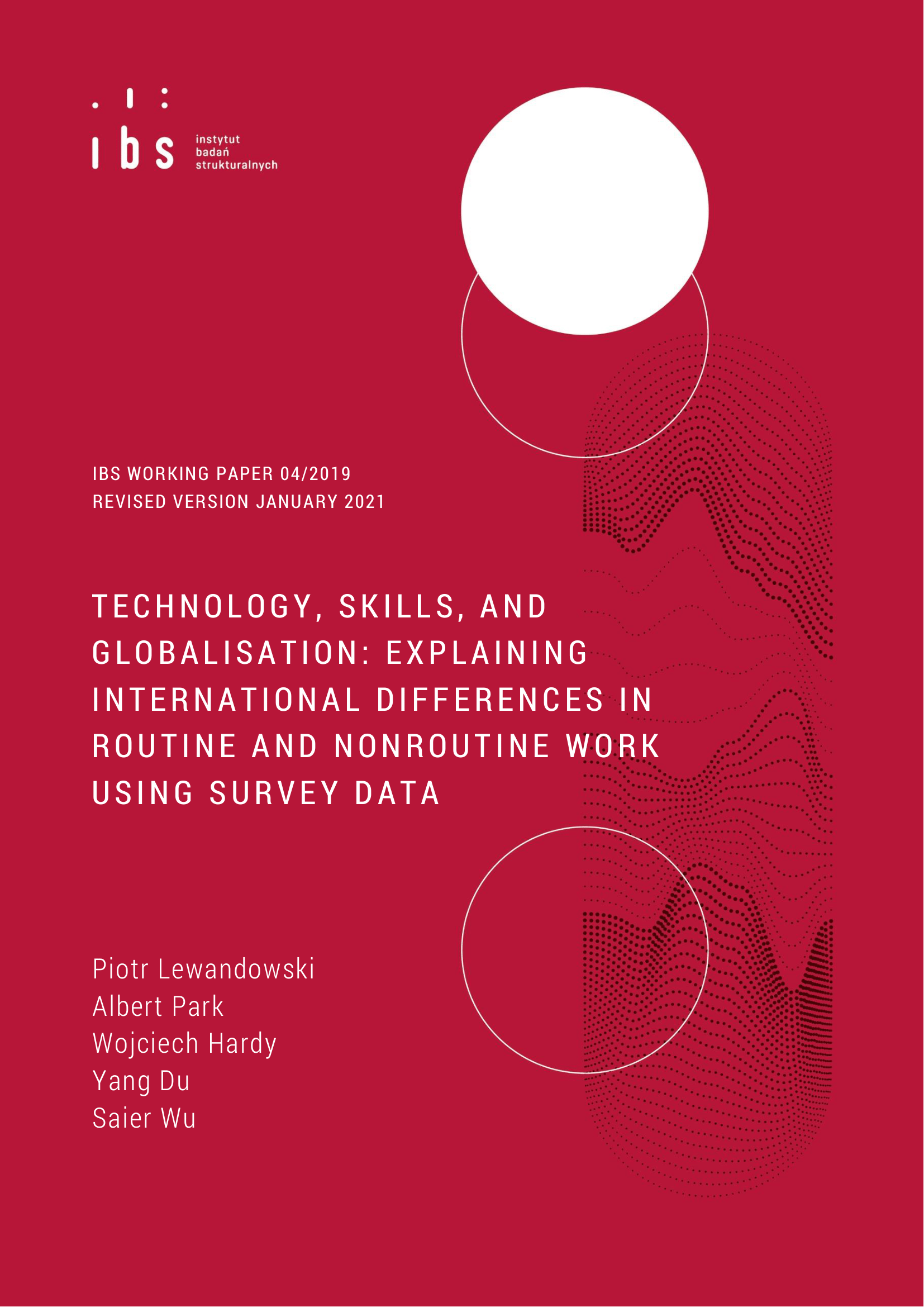The shift away from manual and routine cognitive work, and towards non-routine cognitive work is a key feature of labor markets. There is no evidence, however, if the relative importance of various tasks differs between workers performing seemingly similar jobs in different countries. We develop worker-level, survey-based measures of task content of jobs – non-routine cognitive analytical and personal, routine cognitive and manual – that are consistent with widely-used occupation-specific measures based on O*NET database. We apply them to representative surveys conducted in 47 countries at different stages of development. We find substantial cross-country differences in the content of work within occupations. Routine task intensity (RTI) of jobs decreases significantly with GDP per capita for high-skill occupations but not for middle- and low-skill occupations. We estimate the determinants of workers’ RTI as a function of technology (computer use), supply of skills, globalization (specialization in global value chains) and sector structures, and decompose their role in accounting for the variation in RTI across countries. Computer use, better education, and higher literacy skills are related to lower RTI. Globalization (as measured by sector foreign value-added share) increases RTI in poorer countries, especially in low-skilled occupations. Differences in technology endowments and in skills’ supply matter most for cross-country differences in RTI, with globalization also important. Technology and skills contribute the most to the differences in RTI among workers in high-skilled occupations; while globalization contributes the most to differences among workers in low-skilled occupations.

We thank Peng Jia, Cheng Jie and Zeyang Yu for their excellent research assistance, thank Emily Pawlowski of the American Institutes for Research (AIR) for help with using the US PIAAC restricted data, and participants of ASSA2019 in Atlanta, EALE2018 in Lyon, Jobs and Development Conference 2018 in Bogotá, TASKS V in Bonn, seminars at UCSD, The World Bank, and Princeton University, as well as workshops in Beijing, Geneva, Luxembourg, Singapore and Warsaw for their insightful comments. The usual disclaimers apply. All errors are our own. The first version of the paper was published in April 2019. The revised version was published in January 2021.
Institute for Structural Research (IBS), Faculty of Economic Sciences and Digital Economy Lab (DELab), University of Warsaw

